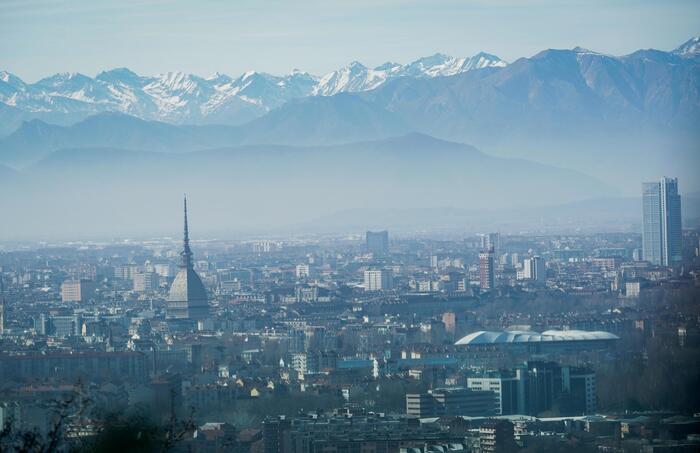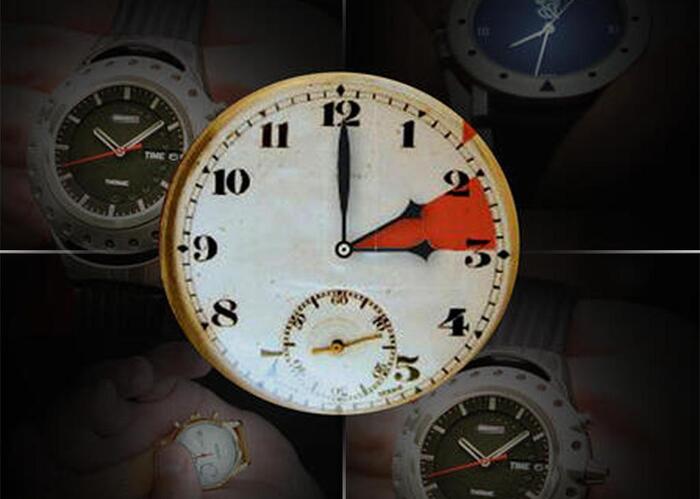Enlarge image
A former police officer in Kabul in September 2021.
Policewomen have been in danger since the Taliban came to power (archive image)
Photo: Marcus Yam / Los Angeles Times / Getty Images
I've written a lot about what has changed since the Taliban regained power in Afghanistan.
Today is supposed to be about the story of a woman.
I spoke to her on the phone.
How she grew up, how she lived, and how the Taliban rule turned her life upside down within a few weeks.
Jamila, as she is supposed to be called here, lost her father in 1994 when she was two years old.
He died in an argument between various mujahideen groups.
Jamila's mother was suddenly alone with her three children;
In addition to Jamila, she had a 13-year-old son and a six-year-old daughter.
Jamila's example shows that women in my home country Afghanistan had to fight more and more for their interests.
But that in the past two decades it has become easier for them, that individual dreams could become reality.
But that the Taliban have now destroyed everything that has been achieved.
Jamila grew up far from education in the 1990s.
Her mother had never attended school or mosque to learn to read or write.
Jamila's father was a farmer, a few sheep, cows, and chickens grazed on the family's small farmland.
A meager life.
There was no school in the mountain village where Jamila grew up.
In 1996 the Taliban took power in Afghanistan.
They banned education for girls.
Jamila's dream of writing and reading became even more distant.
But then she was very lucky.
In 1999 an organization opened a school in their village.
For the first time, it was a great advantage that the place was so remote and far from everything: even though she was a girl, Jamila was allowed to go to school and study.
The Taliban never came around.
When Jamila was in third grade, the Taliban were ousted.
From then on, access to education became easier for women across the country.
It was always clear to Jamila: she wants to become a woman who helps other women.
She had witnessed how bad relatives treated her mother for so long;
how she had to ask permission for every little thing, couldn't decide anything for herself - while she worked so hard to get her children through.
Jamila became a police officer and after graduating from 12th grade she worked at the Ministry of the Interior in Kabul.
It became part of the department for combating sexual violence.
She was proud.
She had reached her dream job.
Felt like she was in a place where she could really improve other women's lives.
On August 15, 2021, Jamila put on her uniform as always.
She went to the office.
She noticed that fewer people than usual were walking the streets of Kabul.
At 10 a.m., she remembers, a colleague came into the room.
"Let's go.
The Taliban stormed Kabul.
Let's run away, ”she said.
Women in uniform - intolerable for the Taliban.
Jamila told me about that moment on the phone: “I didn't understand.
I cried.
My colleague and I put down our guns.
Took off the uniform jackets.
We started running without knowing where.
I don't know how, but a few hours later I found myself in my apartment. "
Jamila says that all of her dreams will have fizzled out in a few hours.
16 years of training and learning are now like air, worth nothing.
Women are no longer allowed in the police force.
You have been expelled from the relevant authorities, says Jamila.
Policewomen are intimidated and threatened with death by the Taliban.
There were around 3,400 female police officers in the country.
They have all lost their jobs and no longer have any income.
You are now dependent on men's money.
Women are now only allowed to work in the health sector and as primary school teachers, and in a few other professions.
Jamila doesn't get any more money and can no longer afford her rented apartment.
She can no longer be a role model.
“Who can young girls look up to now?” She asks herself, and: “Do we women deserve it?
What will 2022 bring for me?
Will I have enough to eat? "
A quarter of a century later, if you will, Jamila finds herself in the same powerless, fearful situation as her mother once again.
Over the past few months, the Taliban have continued to restrict women's lives.
There are travel restrictions for her, dress code;
in some regions clothing stores have been asked to behead their mannequins.
Many shelters for women have been closed.
Women are no longer allowed to travel alone and have to be veiled on the way.
TV presenters must wear a hijab.
Anyone born today as a woman gets this idea from life: that as a girl you don't have the same opportunities as a boy.
That a woman depends on the will of men.
Jamila speaks on the phone with great fear.
She is thinking about leaving Afghanistan.
But how?
And, that is what she gave me as a thought during our conversation: If all educated people leave Afghanistan, who will be left and who will uphold the values of a freer, more just society against the regime?
Who stays then, for the women and the vulnerable in Afghanistan?
Translation and editing: Maria Stöhr
This contribution is part of the Global Society project
Expand areaWhat is the Global Society project?
Reporters from
Asia, Africa, Latin America and Europe
report under the title “Global Society” - on injustices in a globalized world, socio-political challenges and sustainable development.
The reports, analyzes, photo series, videos and podcasts appear in a separate section in SPIEGEL's international department.
The project is long-term and is supported by the Bill & Melinda Gates Foundation (BMGF).
A detailed FAQ with questions and answers about the project can be found here.
AreaWhat does the funding look like in concrete terms?
The Bill & Melinda Gates Foundation (BMGF) has been supporting the project since 2019 for an initial three years with a total of around 2.3 million euros - around 760,000 euros per year.
In 2021, the project was extended by almost three and a half years until spring 2025 on the same terms.
Are the journalistic content independent of the foundation?
Yes.
The editorial content is created without the influence of the Gates Foundation.
Do other media have similar projects?
Yes.
Big European media like "The Guardian" and "El País" have set up similar sections on their news sites with "Global Development" and "Planeta Futuro" with the support of the Gates Foundation.
Have there already been similar projects at SPIEGEL?
In the past few years, SPIEGEL has already implemented two projects with the European Journalism Center (EJC) and the support of the Bill & Melinda Gates Foundation: the “Expedition ÜberMorgen” on global sustainability goals and the journalistic refugee project “The New Arrivals” within the framework several award-winning multimedia reports on the topics of migration and flight have been produced.
Where can I find all publications on global society?
The pieces can be found at SPIEGEL on the topic Global Society.






/cloudfront-eu-central-1.images.arcpublishing.com/prisa/KA3LQ5ZEAFEQXOIZXJEEVDUZUQ.jpg)





/cloudfront-eu-central-1.images.arcpublishing.com/prisa/KMEYMJKESBAZBE4MRBAM4TGHIQ.jpg)


